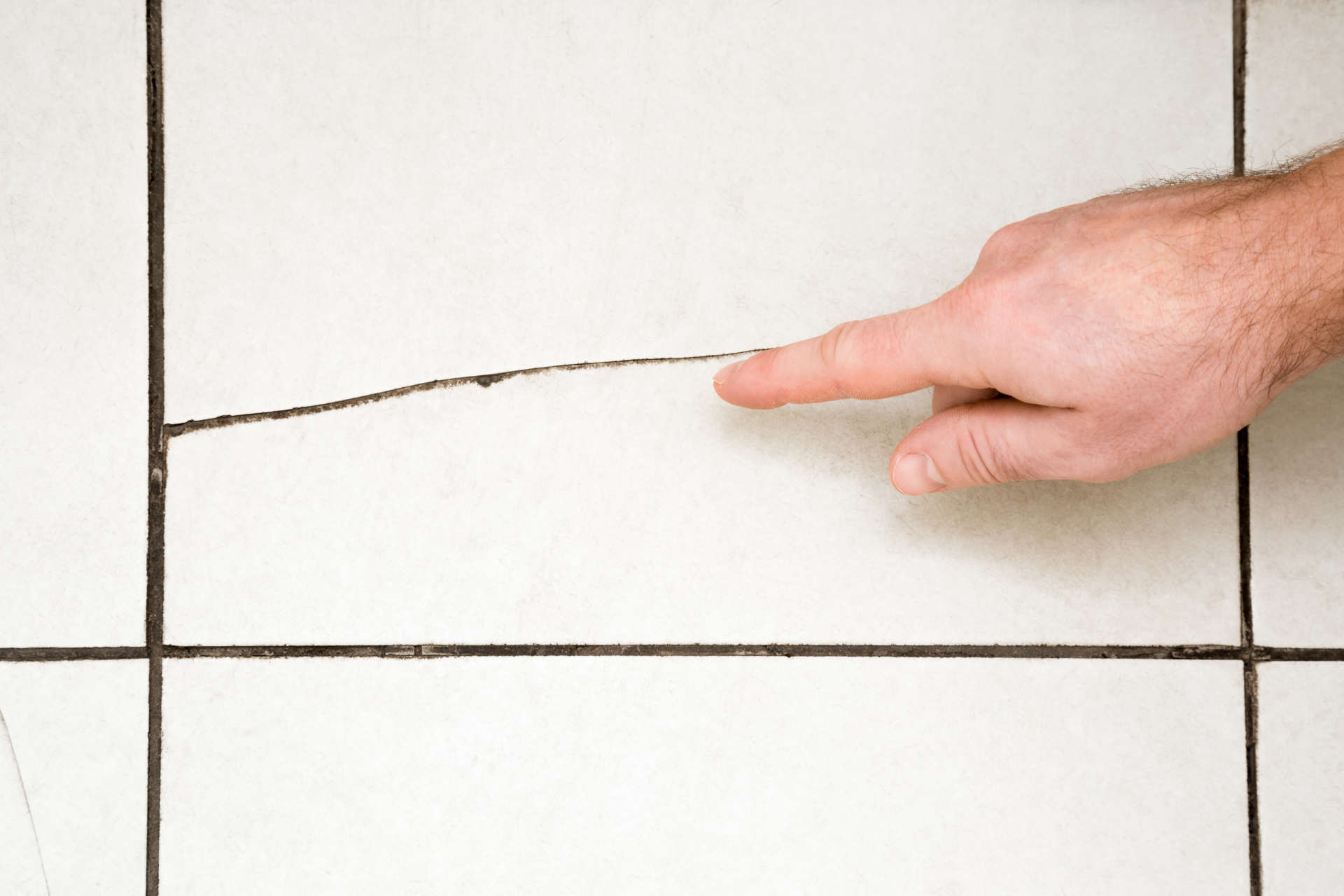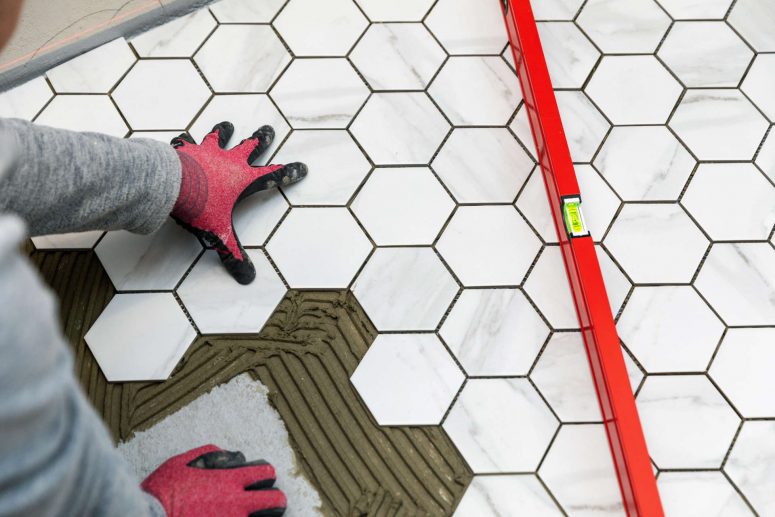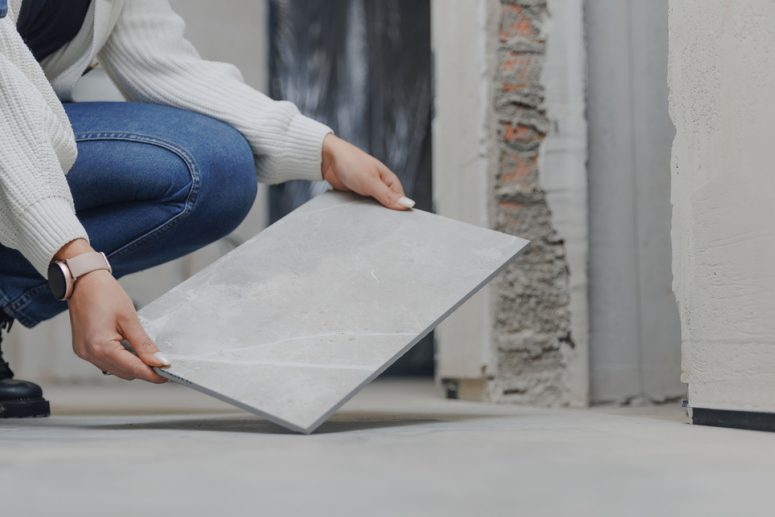A beautiful tile floor can quickly lose its allure if tiles start to lift or crack. You want to be sure that the tile floor you have invested in has been installed correctly, looks good and will last for many years to come. When you start noticing cracks in your beautiful floor, this can be very disappointing.
Cracking of tile floors is a serious issue for many homeowners. Let’s explore the reasons why tile flooring cracks, lifts, and breaks and see what can be done to prevent it.
Why Do Tile Floors Crack?
Tile fractures can occur for many reasons. The first is the obvious reason, cracks that occur when heavy items fall on them. Sometimes tile starts to crack when it must support extremely heavy furniture or appliances. More often though, cracks appear due to a substandard installation or through insufficient care.
Whether you are in a newly built property, recently renovated house or an established home, the reason why tiles break can vary greatly. These are some of the most common reasons why tiles tend to crack:
- Poor Subfloor Preparation: Without the right foundation preparation, nothing can stand properly. The subfloors serve as the foundation for your tile floors. Your tiles may fracture if your subfloor is not prepared with the proper care. Subfloors may have been left uneven or still have large traces of dirt and debris on the surface that remained there during the tile installation process.
- Concrete Settlement: Concrete is a porous substance and absorbs water. As the temperature changes, the floor expands and contracts. Tile on the other hand is hard and unyielding. It does not mimic the subfloor’s natural movement. Tiles are adhered to the concrete but lack flexibility which can then result in cracking as the concrete settles. This is preventable by following the correct tiling processes.
- Control Joints: Concrete is inclined to crack and for this reason it is often poured with premade cracks already in place. These prepared cracks are called control joints. Control joints prevent any potential fractures from affecting the entire foundation. A crack will stop once it reaches the control joint. Additionally, this enables homeowners to monitor any cracks in their concrete.
Tiles that are laid over a control joint, are in fact laid over a specifically weakened area. This will cause them to break quite easily. Again, by following due process, this should never happen. - Concrete not properly cured: After being poured, concrete needs time to cure. The concrete shrinks as it cures, due to water evaporation. When tiles are laid too soon, without allowing enough time for the concrete to properly cure, the concrete shrinks and causes the tiles to break. (Keep this in mind when using a concrete leveler to level the floors).
- Incorrectly sized tile expansion joints: You may have wondered why there are grout spaces between tiles. The reason behind these spaces is to accommodate shifting and movement. Tile is rigid and requires space to move when the underlying concrete moves. If tiles are laid too closely together with expansion joints that allow too little room for movement, the tiles will crack as and when the subfloor shifts.
- Substantial mold presence: Mold causes many adverse effects on a house, including the ability to crack your tiles. Your grout can become moist, which encourages the growth of mold. Mold thrives in dark and damp places, therefore if growth continues unabated, it can get under your tiles. This can eventually lead to the lifting and subsequent cracking of your tiles.What Can Be Done to Prevent Tile Cracking
As you may have concluded at this point, the leading cause of tile damage is due to incorrect preparation and installation. To prevent costly mistakes, it would be in your best interest to hire qualified tile contractors to ensure the longevity of your tile floors. Let tile experts take care of the floor preparation and tile installation so you can enjoy the beauty of your tile floors for longer.Prevention Through Thorough Pre-Installation
Preparing your surface properly before installation is the most proactive approach to avoid tile floor fractures. A professional team should initially level the subfloor. There are a number of techniques to accomplish this, but the two most popular methods are installing plywood or using a leveler.Once floors have been properly leveled and given the time to cure, the next step is the cleaning process. Any debris left behind can cause tiles to crack, therefore it is very important to properly clean the floor before tilers can go ahead with the installation. Concrete floors need to be vacuumed, mopped, and scrubbed.
Never adhere tiles straight onto a plywood or cement surface, regardless of their cleanliness. An anti-fracture membrane should be installed between tile and subfloor. Anti-fracture membranes serve the specific purpose of aiding in crack prevention. It absorbs energy that can lead to cracking and redistributes it over a larger area, lessening the burden on single tiles and effectively preventing cracking.Prevention Through Post-Installation Care
After the completion of your tile floor by a professional tiler, maintenance and cleaning will assist in extending its lifespan and prevent cracks or other problems. Make use of professional tile and grout cleaning services to aid in longevity. Let a professional tile contractor remove mold, fix cracks, restore grout, or replace broken tiles.
To stop mold from growing, spreading and lifting your tiles, make sure to regularly clean your grout and tiles. You can consider the option of sealing your grout, which will protect its pores.Professional Prevention of Tile Damage
The best way to prevent damage to tile floors is to make sure you choose knowledgeable and experienced tile contractors for all new tile installation projects. Our team at AF Quality Builders are ready to assist you with all your tiling requirements. We can take care of your new tile installation requirements and we will do it right the first time. We offer a variety of tile services, including new tile floor installations and grout and tile restoration. We will make sure your tile is taken care of so you can enjoy your lovely floors for years to come.
For more details and information on how we can assist in keeping your floor properly maintained, refer to our grout and tile cleaning services. Contact AF Quality Builders when you are ready for a professionally placed tile floor, or if you need assistance with damaged tiles. We will provide you with advice and a free in-home quotation and demo.




